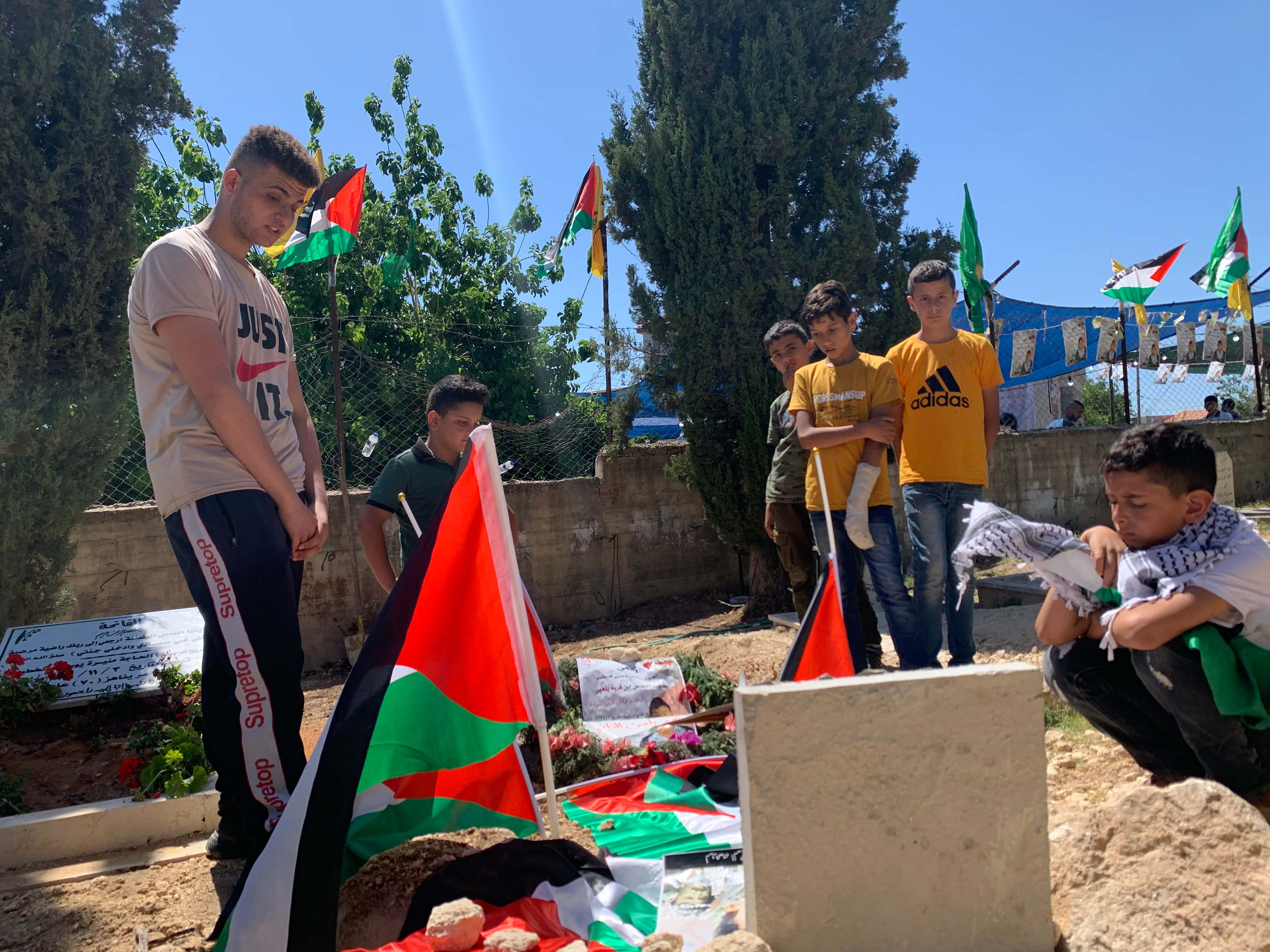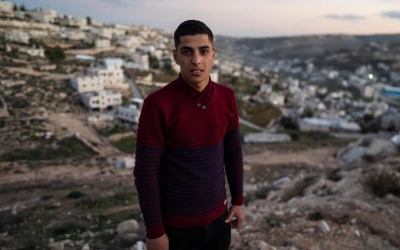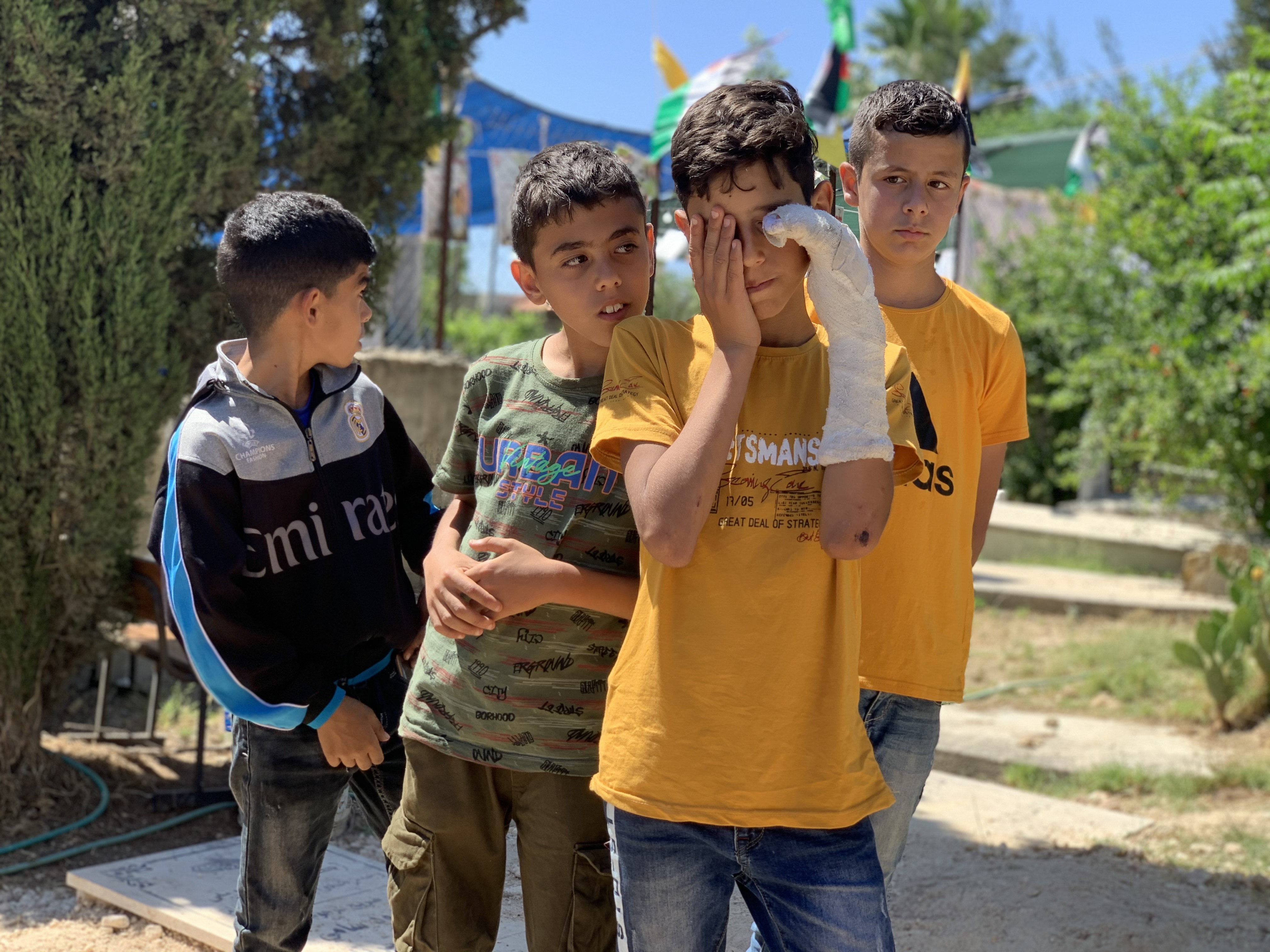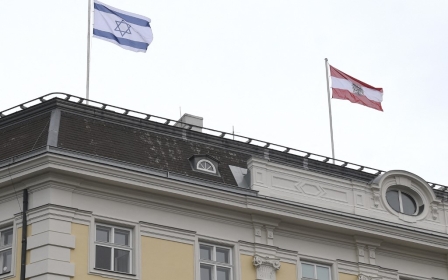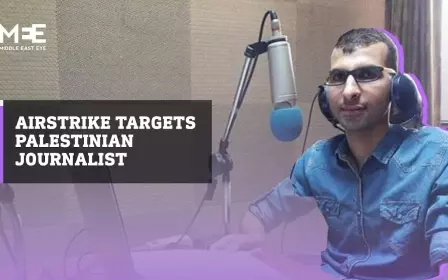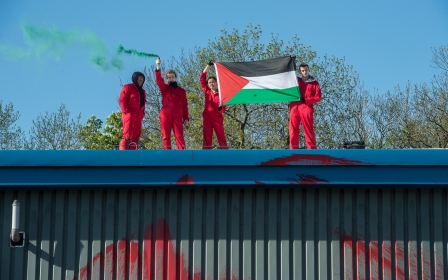'He never hurt anyone': Palestinians mourn child killed by Israeli forces
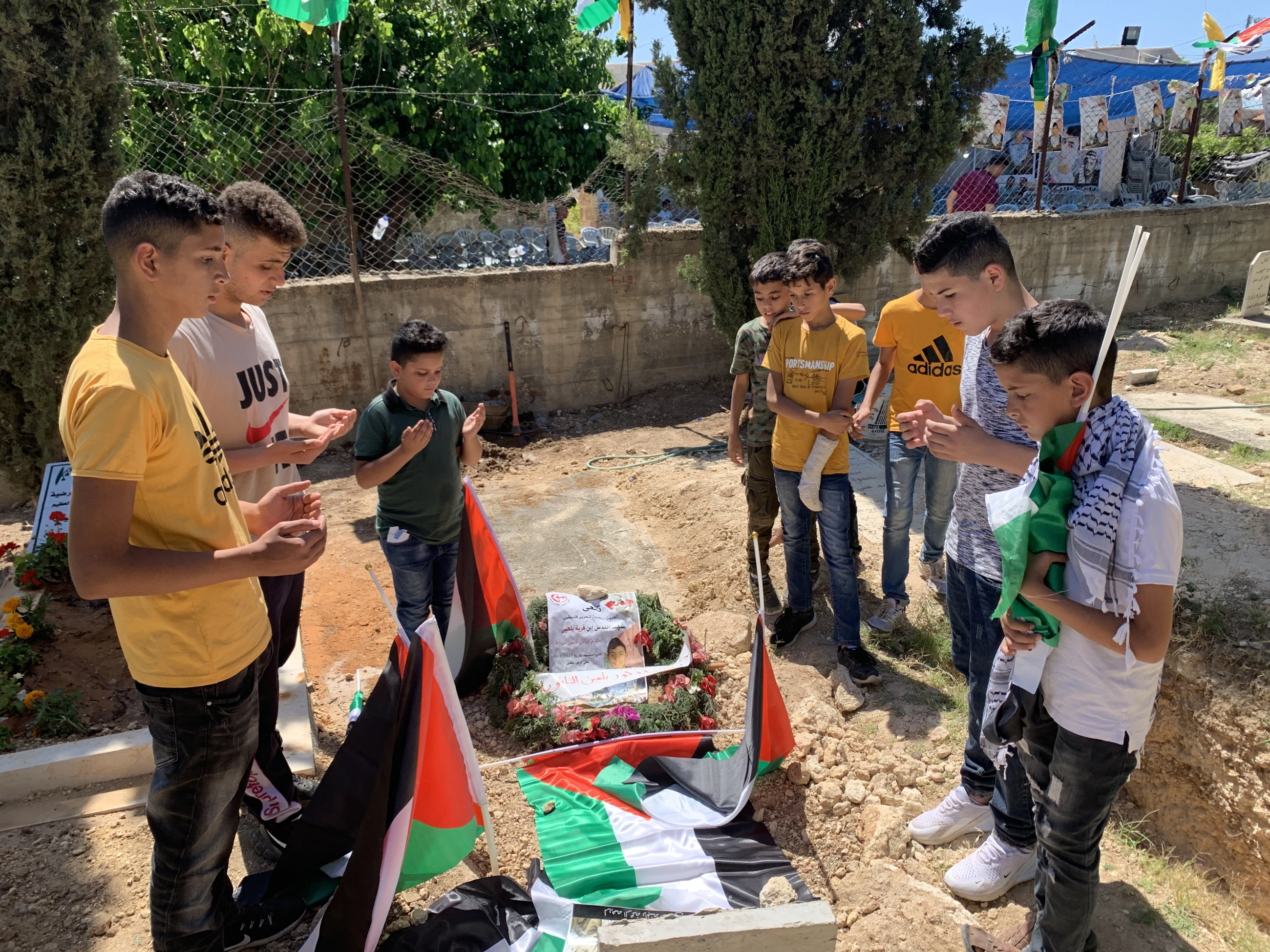
In the Palestinian village of Bil'in, on the outskirts of Ramallah, a group of children stood in shock and disbelief around their friend's grave.
During protests in the village on 18 May against the ongoing Israeli bombardment of Gaza and plans to displace Palestinians in Jerusalem, Israeli forces shot and killed their 16-year-old friend, Islam Wael Burnat.
"Would it be possible to re-open the grave and see Islam?" one child wondered innocently among his friends as he stared down at the grave. He might still be holding on to his life - maybe there is a mistake, the child said quietly.
Another asked: "Is Islam really inside this grave now?"
New MEE newsletter: Jerusalem Dispatch
Sign up to get the latest insights and analysis on Israel-Palestine, alongside Turkey Unpacked and other MEE newsletters
Their questions conveyed their rejection of Burnat's killing and his rapid departure from life. He was one of the happiest children in the village, they said.
Burnat's killing came amid a nationwide general strike by Palestinians under the slogan, "From the river to the sea," which took place on 18 May and saw thousands of Palestinians take to the streets across historic Palestine. The current popular uprising unfolded with Israel's attempts to forcibly displace Palestinians from their homes in the neighbourhood of Sheikh Jarrah in Jerusalem.
In the militarily occupied West Bank, Israeli forces killed four protestors on 18 May, including three in the Ramallah area.
The number of Palestinians killed in the West Bank since the start of the uprising in April has reached 29, with Burnat being the youngest.
'Islam did not stand up'
On the afternoon of 18 May, Burnat, along with residents of the village, headed to the Abu Laymoon area in Bil’in, which stands under threat of being confiscated by Israel for settlement expansion.
Israeli forces arrived in the area soon thereafter, unleashing confrontations. According to the residents, only the sound of live bullets was heard, breaking with the army’s tradition of using tear gas and sound bombs to disperse the regular demonstrations in Bil'in.
One of Burnat's friends, 14-year-old Abdullah Zaid, who had accompanied him to the protest, recalled to Middle East Eye: "I was afraid and I stood in the back awaiting more people from the village to come. Suddenly, the sound of bullets rang once again, and everyone dropped down.
"When we all stood back up again, Islam did not stand up. There was a blotch of blood on his head. The youth carried him and began running," continued Zaid.
In less than an hour, Burnat was declared dead by medics.
"Islam was a very cheerful person. He would always make us laugh and have a good time. He only wished the best for others. We don't recall that he ever hurt anyone," Zaid said.
Janna, Burnat's mother, is experiencing a nervous breakdown. She cannot fathom that she has lost one of her four children. She sits in complete silence in the living room of her house, staring at the white roof, while bursting into tears intermittently.
Wael, Burnat's father, is also in a state of shock, unable to speak, crying constantly over his child.
Burnat's paternal grandmother, Intisar Burnat, told MEE that the family, along with the children, collectively and consistently participate in Bil’in’s weekly protests against non-stop Israeli settlement building and land confiscation in their village.
She said that this time, however, not all of the family members were able to attend.
"Janna was busy with maintenance issues inside her home and she could not join the protest early.
"Not an hour passed since the start of the protest, before we received news of Islam having been wounded."
Intisar, 75, could not stop crying over her grandchild, whom she said used to help her with tasks such as caring for her sheep and plants in the vicinity of her home, in addition to cleaning it.
"He was very affectionate and he never left me. I do not know how I will be able to endure his absence and to continue on with my life without him," she said. "I feel my heart burning with flames."
Burnat's killing, continued Intisar, "was a very big shock to us".
"We did not expect to lose him before he grew up and accomplished his dreams," she said, adding that he promised his mother he would be the best at school, to graduate and continue his studies.
'We were playing yesterday'
Burnat stood out in the village for his football skills, his family said. Not only would he play with his friends, he would also teach other children in the family to play, dividing them into teams and turning the yard of their home into a field filled with children running after the ball.
Nurseen, an 11-year-old relative of Islam's, told MEE: "We were playing together yesterday, before he went to the protest. We scuffled during the game and I got angry at home.
"Today, I forgive him. I never want to get angry at him again, no matter what he does. I only want him to return."
During the month of Ramadan, Burnat participated in an annual village-wide sports league.
Issa Abu Rahma, one of Burnat's fellow players, told MEE that he played in a team called Al-Aqsa Martyrs.
"Today, Islam is truly one of [Palestine's] martyrs." Despite not winning in the football match over Ramadan, 16-year-old Abu Rahma says that "Islam was very special and a very good player".
In February 2021, Burnat and his family moved to a new home. A room with new furniture was allocated for Islam and his 10-year-old brother, Mohammad.
"Today, I will sleep in our new room, alone. My brother whom I used to play and fight with is no longer here. The army killed him," Mohammad told MEE.
Before heading to the protests, Burnat made french fries and refused to eat with his siblings. "He told us he didn’t want to be late," said Mohammad.
"The last thing that Islam told me was not to let our father and mother cry over him if anything happened to him during the protest.
"He was not expecting to be killed. He thought he might get wounded or arrested."
This article is available in French on Middle East Eye French edition.
Middle East Eye delivers independent and unrivalled coverage and analysis of the Middle East, North Africa and beyond. To learn more about republishing this content and the associated fees, please fill out this form. More about MEE can be found here.


